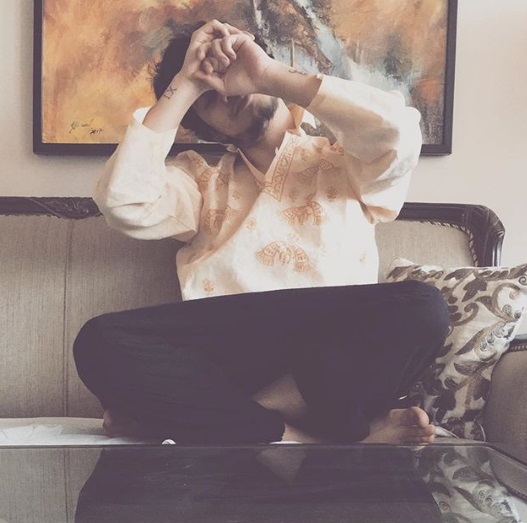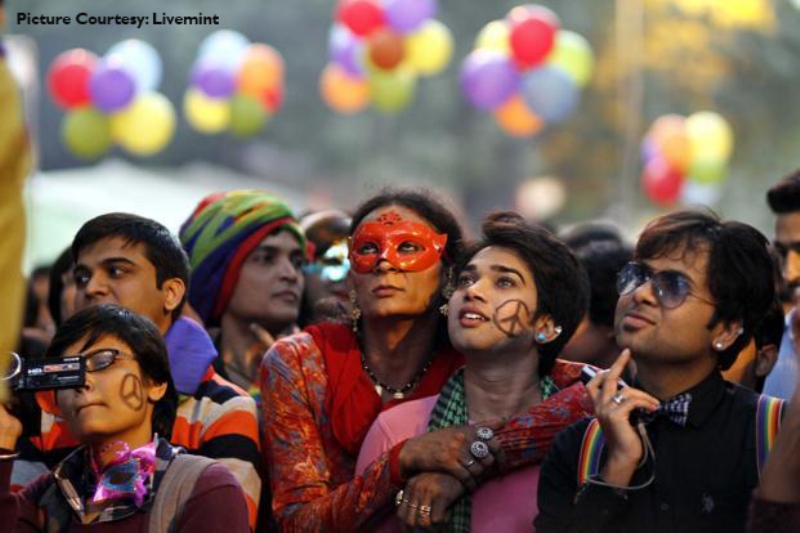In his late teens, Heilige had the first realization of his sexuality. “It was during my graduate college that I had my first encounters with my sexuality, both ephemeral and sexual. By the time I finished my graduation I was sure I was Queer.” Heilige, like many others, first encountered his queer identity through pornographic exposure, “I started off with straight porn. But later, I gradually drifted towards gay porn and I started to like it (the latter).” He feels that it is the case with almost everyone of his millennial generation.


Heilige’s first sexual encounter was a nightmare, “My first sexual encounter was a forceful – and hence – a horrible encounter. That did not shape my views, but it did leave a lasting impression.”. That makes him very concerned about the younger generation because several times initial sexual encounters shape their ideas around sexuality. Heilige feels that mental health of Queers is not given enough importance and he feels responsible towards creating a healthier generation, “Mostly, sexual experimentation of the self begins at adolescence. Extend this to sexuality, and sometimes this could lead to them have exploitative and unhealthy sexual encounters. Our responsibility lies in ensuring that the generation ahead of us has safe avenues to explore their sexuality. Coming out at a very young age is courageous but it can also be stressful, when devoid of a healthy atmosphere. While we celebrate coming out, we often forget to understand that support and counselling are required for many of us to effectively deal with the stress resultant from it. We should focus on mental health of Queer individuals.”
During graduate college, it was on Tinder dating app, that Heilige finally found people that he felt he could relate to. Sexuality was not the other anymore; it became relatable. “I finally met several kindred people. There were others like me, and through those encounters I realized that physical intimacy does not have to be a horrific experience. It can be a beautiful experience as well. These encounters led me to realise that as individuals we shared the bond. We share the values, and we share our experiences. That is what matters. In a way, they heal me. And I heal them.”
In 2016, Heilige entered into a relationship that gave him and his boyfriend the required courage to come out to a few people. However, the breakup took a toll on Heilige. His relationship enabled him to understand the complexities of a relationship, and this 22 year old psychology student feels, “Relationship is usually a bond between two individuals wherein the interests of the other precedes the self. For me, in a relationship, both the individuals contribute to each other’s psychic experiences. The dependency is not a bind, but as a part of self-identification. In a sense, there is space enough for both of the individuals to achieve self-actualization. They develop together, through time. The relationship shouldn’t be constricting.”
Through his work, Heilige has been involved with human rights organizations. He is currently engaged with a Queer organization while pursuing his Masters in Psychology from Ambedkar University in New Delhi, India. Being involved in the movement has given him the space to talk about his sexuality and be vocal about Queer rights. Heilige has not only accepted himself but has also found inclusivity among his peers. That journey though is not entirely complete, “I was raised in a nuclear family. My parents belong to the orthodox Hindu generation. By themselves they have not explored several ideas like gender and sexuality, and hence are not comfortable with. They have not had the opportunity to either read or talk about it. I would rather want to wait for their knowledge about my sexuality to unfold in phases, than it be a sudden and immediate revelation.”
Heilige is optimistic of an inclusive and safe queer future. Apart from the strong possibility that Section 377 might be decriminalized, the active engagement of the younger generation in queer organizations and events gives him hope, “I would like to express that young people who are coming to terms with their sexuality should choose their paths wisely. There are people who are trying to explore their sexuality through encounters. A lot of these encounters are masochistic and that has to go. If at any time they feel vulnerable, they should seek help. The upcoming generation has a mindset of not seeking help and putting on an air of independence. Everyone needs help. The organizations who work on Queer movement are becoming more inclusive and taking into fold the younger generations. Everyone has to work on change they seek in the world. One cannot just sit down and think of how to get away. The way out is taking matters in your own hand and working towards it. If we want to see this country as a progressive society, we have to work for it.”





